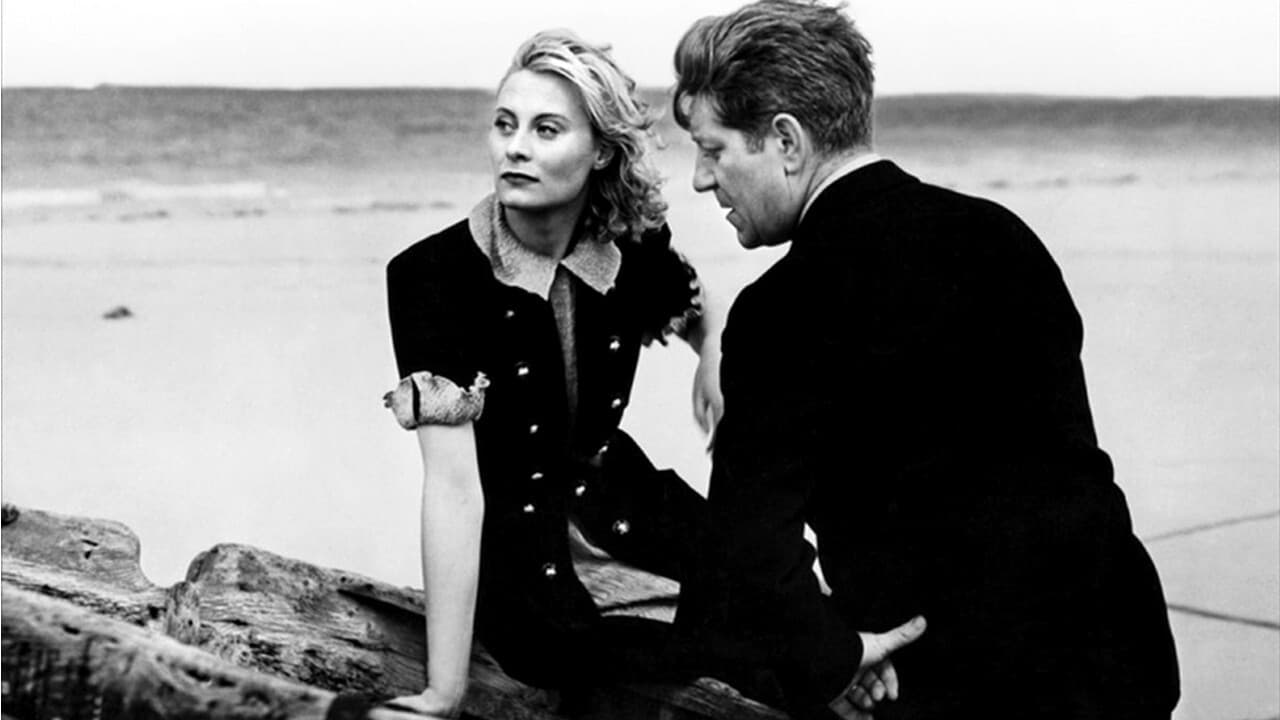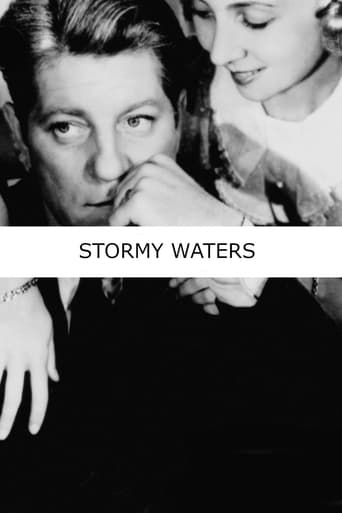

Charming and brutal
... View MoreIt’s fine. It's literally the definition of a fine movie. You’ve seen it before, you know every beat and outcome before the characters even do. Only question is how much escapism you’re looking for.
... View MoreAmazing worth wacthing. So good. Biased but well made with many good points.
... View MoreWhile it doesn't offer any answers, it both thrills and makes you think.
... View MoreA simple story. at first sigh, too simple. because it could seems be well known. but not the love story is the axis. but the atmosphere. the performances. the ocean. the mixture of duty, romance and clash against reality. the strange beauty of the meet between Morgan and Gabin after "Quai des brues"). and, sure, the moving end. a film who remains bitter -seductive against the decades. for its remarkable simplicity. for admirable performances. and for reasons escaping to precise definition.
... View MoreAndre Laurent, the captain of a tugboat, married Yvonne ten years ago. She has a heart disease but does not want to tell him. She dreams he quits his job so they can live quietly. One night, during a sea rescue, he meets Catherine. She wants to leave her husband, the captain of the rescued ship.Jean Grémillon (1901-1959) seems to be a director who knows what he wants. He started this film as the war began (or just prior), and despite France being taken over by Germany, and having to reshoot some footage, he kept at it. And what we get is actually a really good movie. Sometimes I think Criterion releases their eclipse sets just to make a point of saying France, Japan, etc still had movies during World War II, and is not necessarily concerned about how influential or important they may be.This one looks beautiful and surely had an impact. It reminds me of the sort of cinematography we got from the val Lewton-produced films.
... View MoreFilms like this were the bread and butter of French Cinema in the first two decades of Sound and this one boasts a glorious roster from Gremillon himself to Andre Cayette, an uncredited Charles Spaak and, of course, arguably the Greatest of them all, Jacques Prevert. In a film in which the sea is a major character it was a master stroke to begin the story on land and with a set piece, the wedding of one of the mariners which allows a natural chance to establish Gabin's Andre Laurent and hear his praises sung to the heavens then see him in happy domesticated mode, dancing with his wife of ten years and far from happy with his lifestyle though deeply in love with him. An S.O.S. call establishes that these men are the crew of an ocean-going tugboat who help ships in distress in return for a piece of the action. A second master stroke is the delayed appearance of Michele Morgan who we know is about to provide the love interest/temptation for Gabin. She turns out to be the 'wife' of the morally dubious captain of the distressed ship and can't wait to leave him. The fact that shooting began in 1939 only to be halted by the outbreak of war, resumed roughly one year later has led some viewers to see this as a bridge between the poetic realism of the late thirties and the Cinema of Occupation although personally I don't buy into this whilst relishing the Prevertian 'touch' of having Catherine (Morgan) hail from Le Havre which was, of course, the setting for the initial Gabin/Morgan movie Quai des Brumes. The couple of 'holes' in the script - Morgan's husband, reluctant to let her go, makes no attempt to trace her whilst she, with no visible means of support, appears to be living in a luxury apartment - are mere cavils and whichever way you slice it this is one to treasure.
... View MoreA fine and interesting film with flaws which harm it. In part it's an action film- the first forty five minutes or so depict that rescue of a freighter by a salvage tug in a storm, with a lot of pretty good model work- you could imagine Bogart or Spencer Tracy playing Captain Laurent in a remake. On the other hand it's also a study of a particular society- the world of the deep-sea tug men and their wives and families- and there's a kind of mystical aspect too, in the actual relationship of the men and their work. They are portrayed as following a kind of vocation, with altruism as important as profit and their relationships with one another are as important as those with their families. There is a scene with the manager of the firm that owns Laurent's tug that shows the difference between them. The relationships between Laurent and his wife Yvonne and Catherine/Aimee is shown as reflecting his relationship with the sea. The trouble is the different aspects of the film don't fit together properly. Yvonne's illness may be connected with her husband's work; Catherine may be a mysterious being- the sea come to life perhaps or a kind of mermaid or someone who leads Laurent to betray his way life- or she may be a strong woman with a contemptible husband who finally breaks away- we see enough of her with her husband to want to know more, but not enough to understand why she married or remained with him. Equally, we need to know either more or less about Laurent's marriage- why don't they have children for example? In other films Prevert and his collaborators can combine these aspects effectively, but for some reason they don't manage it here. At the end, though, there are extraordinary and extraordinarily moving scenes. Catherine has told her Laurent her secret name- Aimee- when the bosun- a man we know is a thinker and a melancholic- comes to collect Laurent to see his dying wife. "Unhappy men can find each other." he explains to Catherine, who knows she has lost Laurent and prepares to leave Brest. Yvonne dies- as she wanted- with her husband by her. She asks him to say "I love you." but we never know if he said it or not- we see the doctor and the others in the next room and hear a terrible shriek of "Yvonne!" from Laurent and we know she has gone. As if her death had made it possible, a crewman comes with news of a salvage- and their chief rival, a Dutch tug, too, that needs help- and Laurent ignores them. The crewmen go down to the ship and prepare it for sea.The music is a mixture- a burial service, prayers for the dead, plain-chant, the tug's siren moaning and the wind and rain. AS the boat prepares to leave Laurent is seen hurrying down the harbour steps and along the gangplank to give orders to the engine room. Of all the moments of magical realism that Prevert put into his film scripts and made with directors this is surely the most extraordinary and the most moving- it transcends every fault that preceded it and made the film worthwhile.
... View More